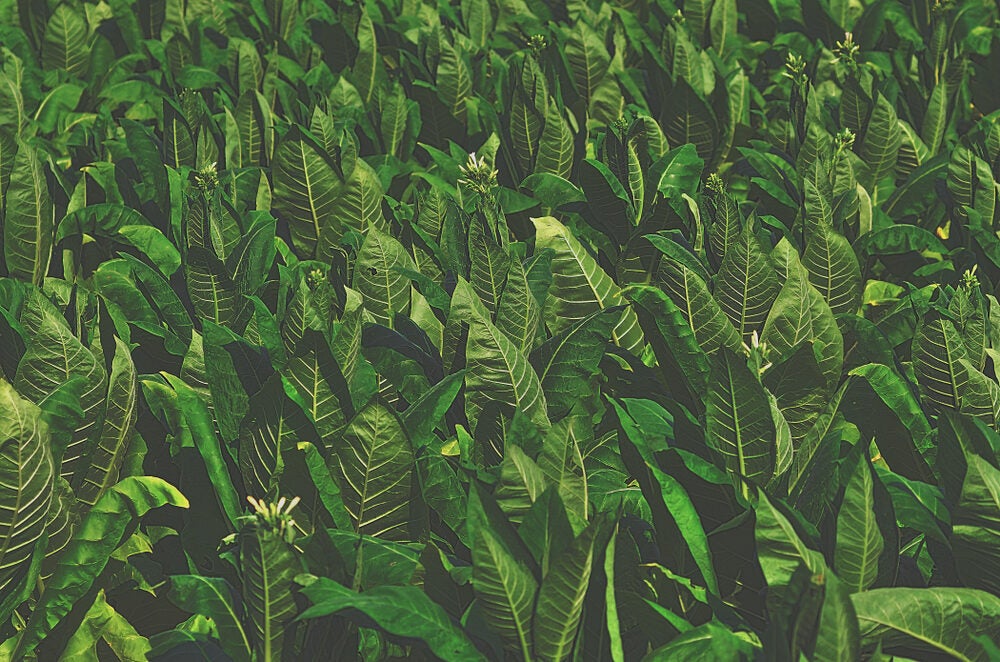
Researchers from Cornell University and the University of Illinois have developed a way of producing proteins useful in agricultural processes inside the cells of tobacco plants.
Plants are already being used to manufacture vaccines and antibodies, but this typically has to occur in sealed greenhouses in batch production to prevent genes escaping from their pollen.
Cellulase manufactured inside chloroplasts can also now be used in food processing and to break down crop waste to create biofuel. Until now, however, the genes for these particular proteins, located in the nuclei of tobacco leaf cells, only have one nucleus with one DNA copy for manufacturing protein, meaning only a small quantity can be produced.
The research published today changes this. The researchers were able to engineer the tobacco plant in such a way that cellulose could be produced inside the plant’s chloroplasts, the cells responsible for photosynthesis.
Each leaf cell contains about one hundred chloroplasts that contain thousands of copies of chloroplast DNA, meaning far larger amounts of protein can be produced, and the process can occur in tobacco plants in fields rather than in greenhouses.
Using tobacco plants to manufacture medicinal and industrial proteins at scale
Justin McGrath, a research scientist at Illinois’ Carl R. Woese Institute for Genomic Biology explains that this means that not only can more of the useful protein be produced, but also at a lower cost:
How well do you really know your competitors?
Access the most comprehensive Company Profiles on the market, powered by GlobalData. Save hours of research. Gain competitive edge.

Thank you!
Your download email will arrive shortly
Not ready to buy yet? Download a free sample
We are confident about the unique quality of our Company Profiles. However, we want you to make the most beneficial decision for your business, so we offer a free sample that you can download by submitting the below form
By GlobalData“This research shows the potential to improve people’s quality of life by producing medicinal and industrial proteins at costs that are orders of magnitude cheaper than current production methods.
“Currently, protein production can cost hundreds to thousands of dollars per gram, but we estimate that this new approach would reduce costs to just a few dollars per gram, allowing production to expand exponentially to help meet market demand.”
Researchers also investigated whether producing protein in the chloroplast compromises photosynthesis and growth. Encouragingly, they discovered that there were no detectable differences in yield, opening up opportunities for future testing of chloroplast protein production.
Stephen Long, the Ikenberry Endowed University Chair of Crop Sciences at Illinois believes that this could mean there is a positive outcome from growing tobacco plants:
“Given the huge health costs inflicted on global society, the idea of growing any more tobacco is not just bad, but ugly. But, this overlooks the fact that tobacco — as a crop bred to produce large quantities of leaves — could be a factory for good.
“Chloroplasts are not present in pollen, making it possible to cultivate this engineered tobacco in fields and transform land once used for cigarette and cigar production into protein factories that can improve our health and industrial efficiency.”
Read more: Algae fuel production method “really important step” towards viable biocrude




